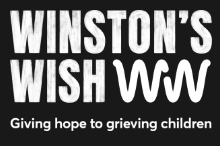Post COVID19 support
Ways to Recovery through A Toolbox of Wellbeing - Powerpoint presentation by Dr Tina Rae
Supporting post-lockdown education using the six principles of Nurture
The nurture principles are ultimately about supporting children who have missed out on key developmental experiences in their early lives. But I feel they are also a useful guide for helping them to recover from an unprecedented change in their daily routine. We will be asking them to cope with this strange and stressful disruption and adapt to a “new normal” in the coming weeks and months. Applying a nurturing approach in children’s return to school-based education enables us to focus on the factors which foster healing and resilience in the face of trauma. Factors such as safety, understanding, wellbeing and inclusion.
Support a Safe & Successful Return to School using the SWAN framework
Your Trainer – Pooky Knightsmith free on line course using videos and discussion
RESTORE
RESTORE provides a restorative perspective that can inform how we plan for the return to the classrooms, playgrounds and corridors of physical schools.
It highlights seven key areas which, alongside learning, are where we need to stimulate thinking and make decisions in order to collectively move forward into a healthy ‘new normal’. The areas intersect, interconnect and affect each other, as we all do. RESTORE is a lens through which staff, children and parents can look at the strategy and plans that are needed for everyone’s well-being in a fast changing environment and for a safe and healthy return to school.
For more details click on the link /restore.pdf
Recognition
Empathy
Safety
Trauma
Opportunity
Relationships
Engagement
From Crisis to Kindness: Seminars for Mental Health Awareness Week
The Anna Freud Centre is hosting a free seminar series, 'From Crisis to Kindness', for Mental Health Awareness Week. (May 2020)
 Free bereavement training for teachers
Free bereavement training for teachers
On average, 1 in every 29 children will be bereaved of a parent. That’s one in every class. Whether your student has been bereaved recently or several years ago, they need support from the school community to ensure that they can cope with their grief. That’s why it’s vital that teachers and staff understand how to support the grieving children and young people in their school.
Winston's Wish have created free online bereavement training courses which will help you understand how grief affects a child or young person and how you can help them cope with their grief. The courses are designed for schools but would be useful for anyone who works with bereaved children. Written by the Winston’s Wish team, drawing on their many years of experience supporting bereaved children, and created by Learning Nexus.
These courses are free, just fill out the form on the link below to access them.
https://www.winstonswish.org/bereavement-training-courses-schools/
Transition back in to school.
Transitioning back into school following the Coronavirus lockdown will be an anxious time for many staff and pupilsEmotional Support for School staff
The GCC Occupational Health team has a wealth of experience in supporting the County’s schools with their health and wellbeing needs.
Their latest factsheet gives details on the Emotional Support available for school staff as they return.
Schools re-opening plan - COVID-19
To be used in conjunction with LA guidance, DfE and PG advice, this checklist and action planner may be helpful to educational settings in supporting mental health and wellbeing of staff, children and young people.
Mental Health Support for Children and Young People
It's normal for children and young people to feel stressed or anxious at the moment. We've all experienced sudden changes in our routines and are living with uncertainty. For some young people, the coronavirus pandemic may also worsen or trigger anxieties they were already struggling with.
How a child or young person reacts can vary according to their age, how they understand information and communicate, their previous experiences, and how they typically cope with stress.
You can support a child or young person by:
- Talking to them about what's going on, how they are feeling and what they're thinking about.
- Reassure them that it's ok to feel the way they do and help them to reflect on how they're feeling.
- Keeping as regular a routine as possible can help a young person feel safer and more stable.
- Regular sleep and activity can also improve mental wellbeing.
Mental Health Support for Children and Young People in Gloucestershire
A new normal: young people look beyond lockdown
The Guardian journalist Iman Amrani speaks to young people about how they are coping with lockdown and the impact it has had on their lives, looking particularly at education, universities and mental health. Click here to view (June 20)
Supporting Children Returning to School After the Lockdown
/Supporting-Children-Returning-to-School-After-the-Lockdown.pdf

